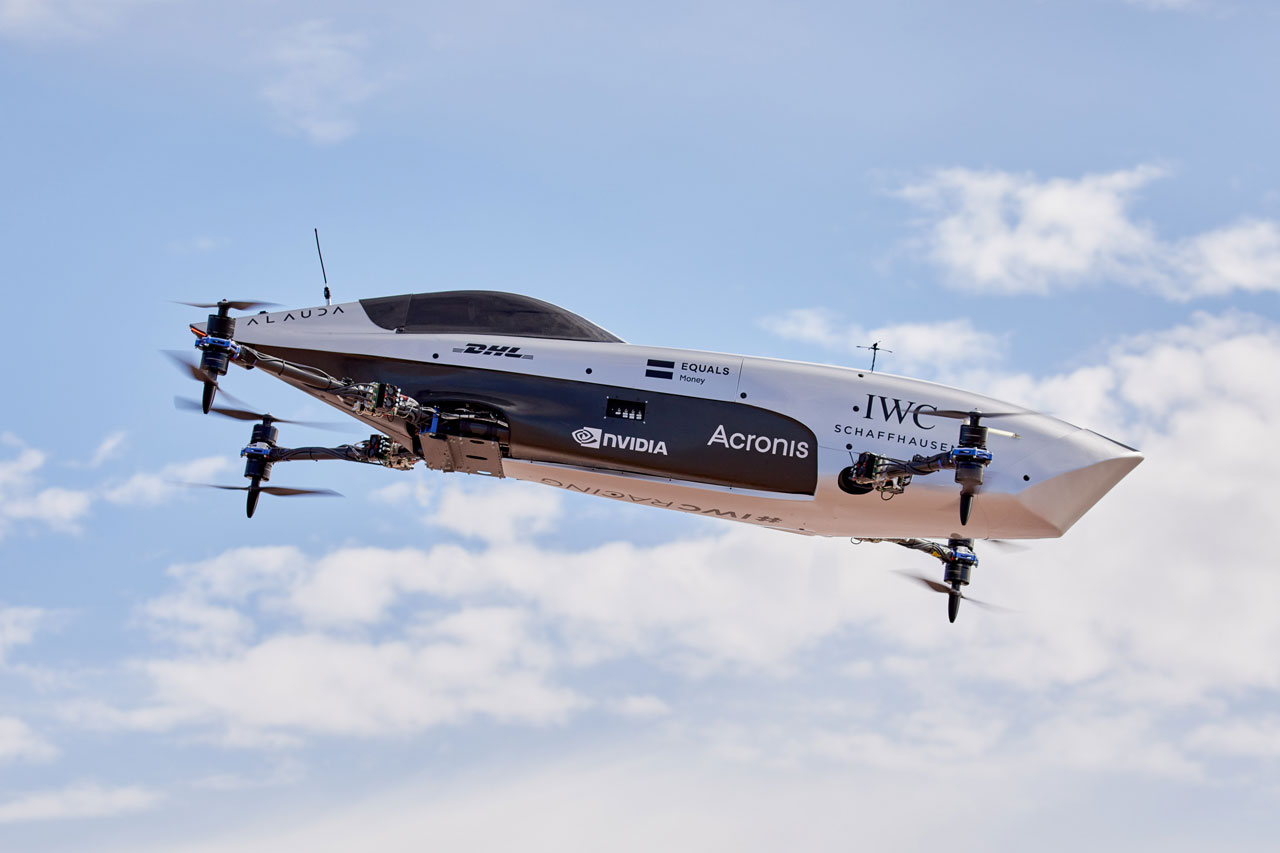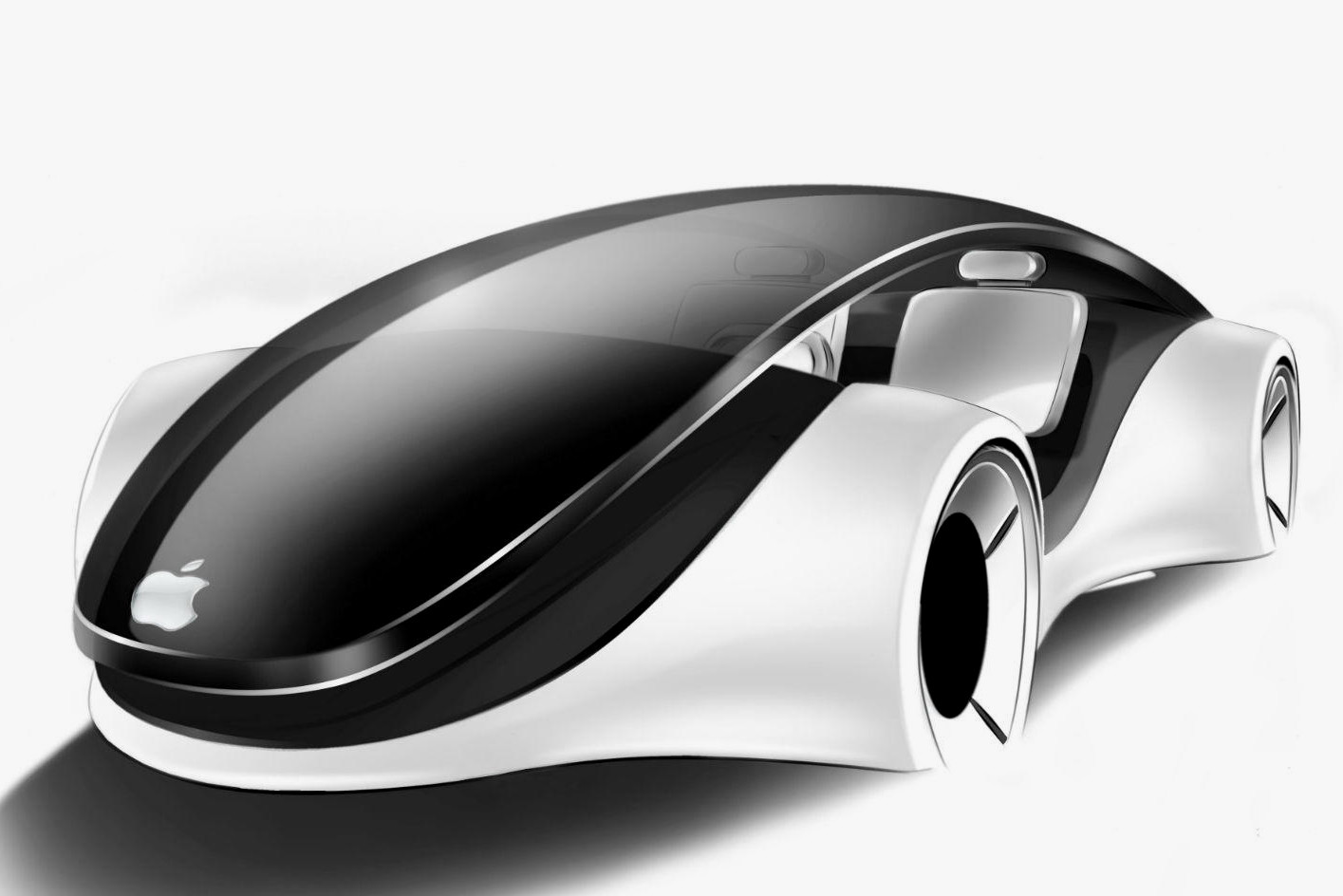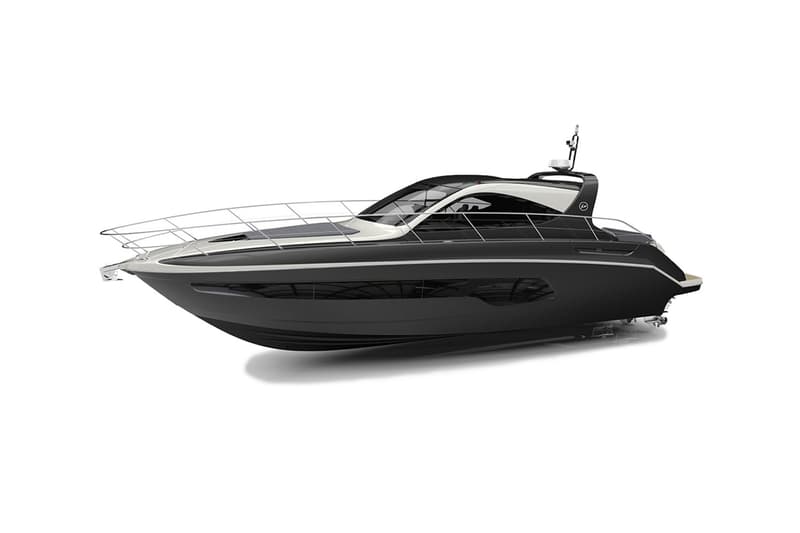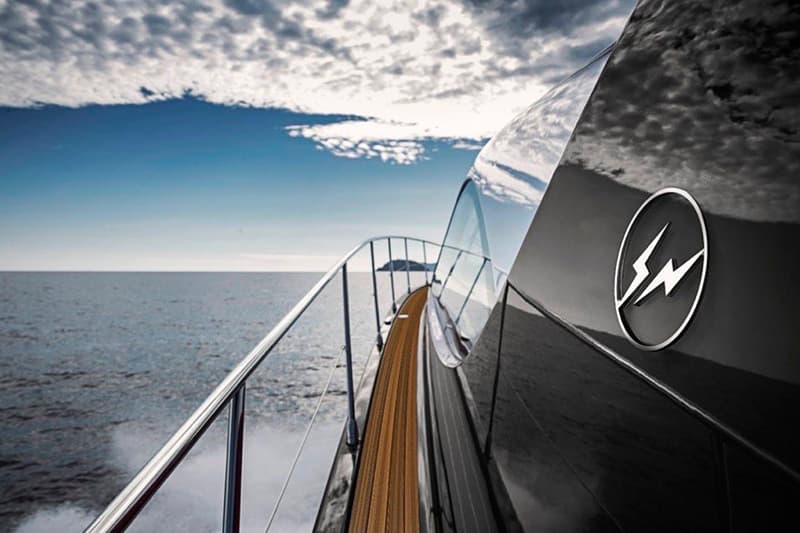
In 2019, Airspeeder and Alauda Aeronautics founder Matthew Pearson declared his intent to create the world’s first racing series for electric flying cars, and only two years later, that goal has been realized in the invention of the Alauda Mk3. The remotely-piloted electric racing car is the product of a collaboration between automotive and aviation experts, engineers, and designers, stemming from backgrounds at Mclaren, Brabham, Boeing, Jaguar and Rolls-Royce. At its maximum power, the vehicle delivers 320kW which is equivalent to the performance of an Audi SQ7 SUV, but at 130kg (287lb), it weighs half as much.
After successfully completing test runs in undisclosed locations in the deserts of South Australia, the Alauda Mk3 is entering production, with ten identical models already built. In the near future, these models will race in the sky in the Airspeeder EXA Series.
“The Alauda Aeronautics Mk3 is the world’s first performance eVTOL craft,” Matthew Pearson said in a press release. “It is the result of the very best minds working with focus to accelerate a mobility revolution. Racing will take this a step further and we cannot wait to compete with elite teams to show the world the dynamic potential of these incredible performance race-crafts.”
Races will see pilots use Augmented Reality to remotely control their cars across “sky-tracks” in a simulator environment that imitates that of a cockpit, while audiences will watch via digital streams. In the real-life Alauda Mk3, physical robots will sit in the vehicle to represent the pilot and provide engineers with data on the effects of sky racing on the human body. By collecting this information, Airspeeder is on schedule to progress to human-piloted races in 2022.
Currently, Airspeeder is preparing to announce its pre-season, an internal racing competition with pilots drawn from within the Alauda team. Up to four teams with two pilots per team will compete in three international locations throughout 2021. Following these final test events, Airspeeder plans to invite external teams to compete against the creators of the flying cars. If you’ve got an Apple iPhone, you’ve probably been told that it’s sensible to invest in an iPad, AirPods, a MacBook, AirTags, or anything else the tech monolith has put its name to. Now, thanks to a number of strategic business hires, it seems that Applewants to replace your car, too.
If you’ve got an Apple iPhone, you’ve probably been told that it’s sensible to invest in an iPad, AirPods, a MacBook, AirTags, or anything else the tech monolith has put its name to. Now, thanks to a number of strategic business hires, it seems that Applewants to replace your car, too.
In January 2021, rumors began circulating that Hyundai and Apple were in talksregarding a possible venture of creating an electric car together. Some time after that, news stirred again implying that the two had almost completed their deal — but again, nothing concrete followed. Then, in April, Tim Cook “dropped hints” that Apple could release a car in the future. In an interview with Kara Swisher for The New York Times’ “Sway” podcast, Cook said: “In terms of the work that we’re doing there, obviously, I’m going to be a little coy on that… The autonomy itself is a core technology, in my view… If you sort of step back, the car, in a lot of ways, is a robot. An autonomous car is a robot. And so there’s lots of things you can do with autonomy. And we’ll see what Apple does.”
We’ll “see what Apple does” indeed. For now, there’s very little to base anything other than speculation on regarding an Apple electric car. However, below is what we know so far, what could happen in the near future — and whether Apple stands a chance in this already saturated industry.
As 9to5mac reports, Apple has hired Porsche’s VP of chassis development to join its “Project Titan” (the assumed code name for “we’re making a car”) team. It also hired ex-Tesla talent — although talent is a word Elon Musk probably wouldn’t use, after saying in 2015 that “[Apple] have hired people we’ve fired. We always jokingly call Apple the ‘Tesla Graveyard.’ If you don’t make it at Tesla, you go work at Apple. I’m not kidding.”
Now, Apple has hired the former BMW executive Ulrich Kranz to also join “Project Titan.” Kranz worked at BMW for over 30 years, and during that time he led teams that developed the BMW i3 and i8 — its first all-electric cars. Working with Tesla (namely Doug Field of Tesla Model 3 fame) minds at Apple under its EV project, it seems there’s good ground to start building a car on — or at least to continue developing the program that’s existed since 2014.
But how feasible is it for Apple to actually make a car? And not just make it, but to actually market, and sell, its electric rival? When one Twitter-using, self-proclaimed tech enthusiast stated “Everyone gonna make cars” in May this year, Musk noted, “Prototypes are easy, production is hard.”
Sure, Apple has the money — and arguably the means thanks to all of its hires – but would you buy an Apple car? As the company’s first iteration of the iPhone proved, it can take Apple a few attempts to really get it right.
In December 2020, Reuters reported that Apple had “breakthrough battery technology,” and, as HYPEBEAST noted, it “radically” lowers the cost of batteries, all while increasing the vehicle’s range. Again, Musk disputed these claims (on Twitter, of course), saying: “Tesla already uses iron-phosphate for medium range cars made in our Shanghai factory… A monocell is electrochemically impossible, as max voltage is 100x too low. Maybe they meant cells bonded together, like our structural battery pack?”
This sounds like one part petty competitiveness, one part hard facts of life. Regardless, Apple has spent about seven years working on “Project Titan” with very little hard evidence pointing towards some kind of four-wheeled, self-driving result.
If we do see an Apple car in the near future, we expect it to be rather quiet in its design approach — clean, simple lines, following a design language followed by Apple’s product range and the electric car industry as a whole. By that time, we expect batteries and range to have developed further meaning it might be a more practical EV, but in true Apple form it’ll also be expensive — as are most new cars from new manufacturers.
Self-driving cars are still a way-off (if Tesla’s words are anything to go by), and even if Apple does get into the electric car market, does Apple have the power to stray us away from Tesla, BMW, Ford, MINI, and almost every other marque that’s releasing electrified versions of their tried-and-tested cars? Perhaps a few more well-considered hires, a huge injection of cash, and ten years of technological development could change everything.

 Unveiled all the way back in 2019, Yanmar is now gearing up to officially offer its collaboration with fragment design. Created in close partnership with Hiroshi Fujiwara, the X47FRGMT by fragment design applies the Godfather of Streetwear’s aesthetic outlook onto the X47 Express Cruiser.
Unveiled all the way back in 2019, Yanmar is now gearing up to officially offer its collaboration with fragment design. Created in close partnership with Hiroshi Fujiwara, the X47FRGMT by fragment design applies the Godfather of Streetwear’s aesthetic outlook onto the X47 Express Cruiser.
No comments:
Post a Comment